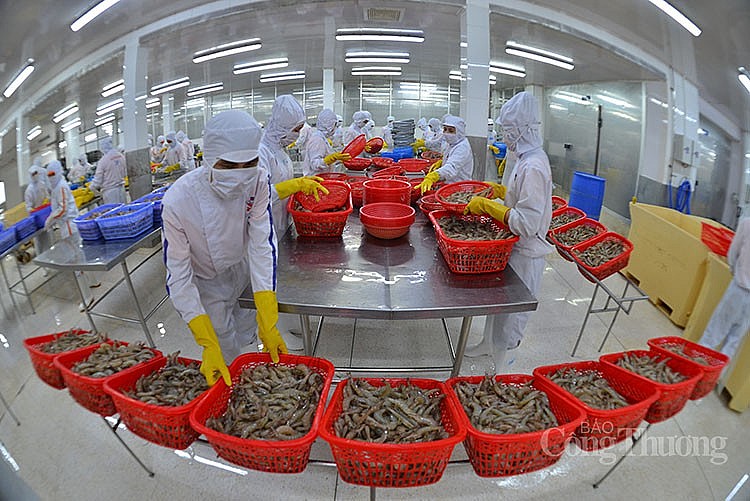 News
News
IMPORT AND EXPORT MARCH 27, 2024 10:19 Follow Congthuong.vn on
| Propose Brazil to remove barriers for Vietnam's seafood exportsVietnamese chili peppers are subject to increased inspection in Korea and Taiwan (China)Korea is Vietnam's third largest rubber export market |
According to Korea 's announcement G/SPS/N/KOR/798 , issued before the 88th Session of the SPS/WTO Committee, the Ministry of Oceans and Fisheries of this country is asking for opinions from WTO members on the draft " Aquatic Disease Control Act”.
 |
| Korea is proposing to control three dangerous diseases with imported seafood |
Among them, three types of amphibian diseases are considered legally controlled diseases, including: Batrachochytrium dendrobatidis (Bd fungal strain), Batrachochytrium salamandrivorans (Bsal fungal strain) and Ranavirus.
The new law applies to all countries exporting seafood to Korea, including live aquatic animals (fish, molluscs, crustaceans) and chilled (frozen) shrimp. same group of amphibians live. Corresponding HS codes: 0301, 0306, 0307, 0106.
The Bd fungus strain, which is a type of Chytrid fungus, is the main cause of toadfish populations in Europe being on the brink of extinction. It is also seriously threatening amphibian diversity globally.
When attached to animal skin, this microorganism prevents the host from exchanging salt and water with the environment. The disease causes irreversible damage and eventually causes the animal to die of heart failure due to suffocation. Infected animals are less likely to survive.
While the Bd fungal strain has been mentioned since the early 20th century, the Bsal fungal strain is considered to have been discovered only about 10 years ago, when scientists noticed a sudden decline in fire salamander populations in Hanoi. Lan. The disease causes skin damage, sepsis and is easily spread.
Similarly, Ranavirus disease is quite common in amphibians. The main symptoms of the disease are skin lesions, bleeding and organ failure.
After assessing the risk, the Korean Ministry of Oceans and Fisheries proposed official control of the above three diseases. At the same time, develop detailed procedures for registering, amending, renewing... animal and animal product processing facilities abroad when exporting to the East Asian country.
Your side also included in the draft the content of direct inspection of seafood export facilities abroad to control epidemics, as well as research on the legal basis to suspend imports according to inspection results. on-site, or analyze import risks, to prevent the spread of epidemics in emergency situations.
Korea said that WTO member countries have 60 days from the date of circulation of the notification to respond. By May 12, 2024, this country will stop receiving comments, proceeding to make an official announcement expected on June 21.
Vietnam is currently the third largest seafood supplier to Korea. In 2023, Vietnam exports more than 150 thousand tons, reaching a value of about 800 million USD. After 8 years of implementing the Vietnam - Korea Free Trade Agreement (VKFTA), Vietnam's export value to the other side continuously shows signs of improvement.
In the structure of Vietnam's seafood products exported to Korea in 2023, shrimp accounts for the highest proportion of 43.6%, followed by squid and octopus accounting for 31.4%. Other types of fish (except pangasius and tuna) have the third largest export turnover to Korea, accounting for 20.8%.
The remaining items accounting for a small proportion to Korea are tuna, pangasius , crabs and other crustaceans, bivalve molluscs and other mollusks (accounting for from 0.3% to 2.2%). .
Korea is Vietnam's largest import market for squid and octopus, accounting for 37% of total export value. Meanwhile, Vietnam ranks second in supplying squid and octopus to Korea, after China. In 2023, squid and octopus exports to Korea will reach more than 247 million USD, down 8% compared to 2022.
The Vietnam Association of Seafood Exporters and Producers forecasts that in 2024, Korean seafood imports are likely to increase again when the Korean economy is likely to regain growth momentum. The Central Bank of Korea (BOK) estimates that the country's economic growth will reach 2.1% in 2024, up from 1.4% in 2023.